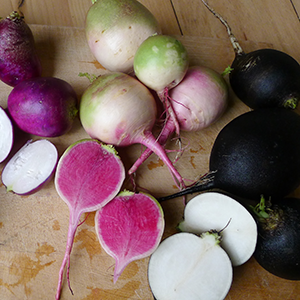
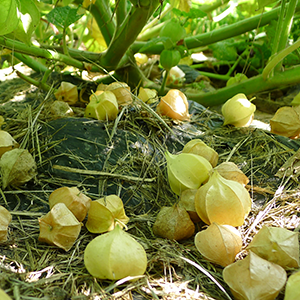
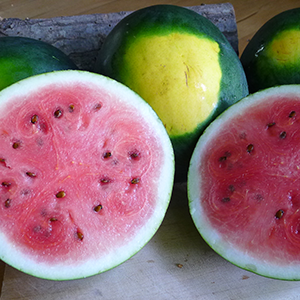
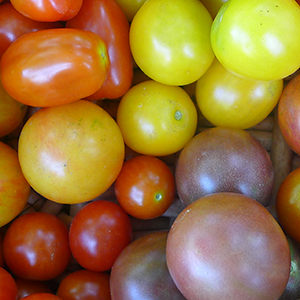
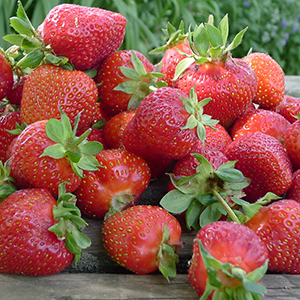
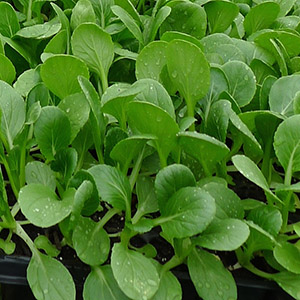



News and Notes | The Anchor Run Blog
Displaying a Single Post |
Show Recent Posts
July 23, 2017
End of Steamy Heat Wave
By Derek McGeehan
End of Steamy Heat Wave
By Derek McGeehan
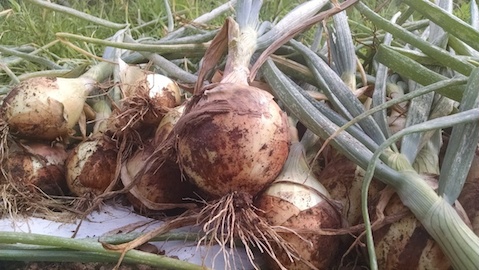
Amid this heat wave we had a satisfyingly productively sweaty week on the farm. Two thousand five hundred pounds of carrots were successfully harvested by the farm crew and CSA members after the tractor loosened the soil for ease of harvest. We'll all be enjoying this heirloom carrot variety known as Red Cored Chantenay for a couple of months. One thousand two hundred pounds of fresh sweet onions, also an heirloom variety, were pulled, trimmed, and stowed for distribution as well, about one-third of the total onion harvest.
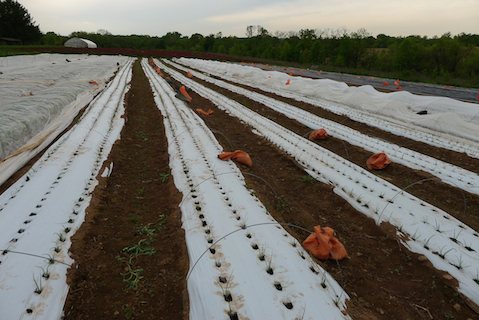
Carrots and onions are two of the most challenging and sensitive crops that we grow so we're thrilled and extremely happy when we harvest a successful crop. They're also two of the most beloved and common foods. I should add that they also used to be some of the most labor intensive crops to grow. After some tweaking of growing methods, especially with the onions, we've begun to realize important improvements in yields while improving farm efficiency. In an attempt to have enough onions for the CSA we used to just try to grow too many. Instead of doing that this year we reduced the amount we grow by 20%, grew two instead of one per hole (therefore reducing the onion patch footprint by half), planted them into white plastic which deters some bugs, used two lines of drip tape irrigation instead of one, and following transplanting used hoops and row cover to shield the plants from a new invasive pest for their first month outside in the ground. Above is what the patch looked like in mid-April and below is current.
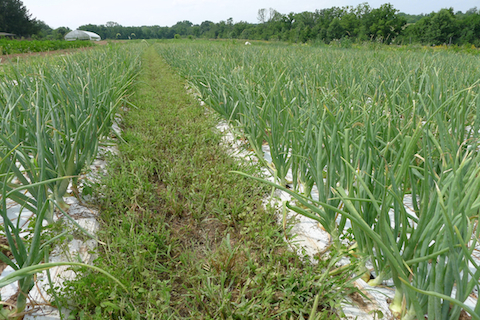
Regarding carrots, we've learned to use specific varieties that are somewhat shorter with tapered roots that perform well in heavy soils. We've also learned that if we seed them at appropriate spacing we may be able to avoid thinning, which takes A LOT of time. Carrots fortunately don't have much disease or pest pressure, so if we can stay on top of the weeds through cultivating and hand weeding we can generally rely on a crop (as long as we don't receive copious amounts of rain when they're practically mature and beckon for retrieval, which almost happened at the end of last week). Because they take up to 3 weeks to germinate and require the soil to remain moist we normally add a layer of row cover to slow down evaporation. Covering the soil, though, heats it up and can sometimes stimulate weed germination and growth that outpaces the carrots. So, some timely and very careful early cultivation is absolutely necessary to avoid losing the crop before it is barely established. The crop this year was cultivated three or four times and handweeded at least once.

POSTS BY TYPE
POSTS BY MONTH

